Introduction
No travel company will ever say no to leads, and that’s God’s honest truth. In 2022, in India, the total number of domestic visitors recorded a 98 percent year-on-year growth. That is bound to get you interested. And in a travel company, a powerful Recommendation and Catalog engine is bound to be miraculous.
Software that generates tailored user recommendations based on their preferences and platform interactions is known as a recommendation and catalog engine. To create individualized suggestions, it analyzes user data to find trends and connections between users and items. Catalog engines organize and manage product or content catalogs by classifying and labeling items according to their qualities. By providing pertinent recommendations and making it simpler to identify and buy goods or information, these engines enhance the user experience. Online marketplaces, streaming services, and e-commerce websites frequently employ them.
For modern travel companies, having recommendation and catalog engines at their disposal can mean the difference between success and failure. By implementing these specialized tools and technologies, businesses can stay one step ahead of their competition and gain an edge in customer satisfaction. By analyzing customer behavior and giving personalized recommendations in real-time, not only can they increase sales but also create an optimal customer experience.
Catalogs are important for travel companies (or OTAs) because they provide customers with a full range of options for booking their next trip. Catalogs enable customers to see all services, packages, and offerings available from any travel company, allowing them to decide which one best suits their needs. Furthermore, catalogs can give customers additional information about destinations and attractions at those locations, helping them plan their entire trip.
What is hyper-personalization of recommendations, and why is it important for the travel industry?
Hyper-personalization is a more sophisticated personalization that leverages real-time data and artificial intelligence (AI) to provide each client with highly tailored recommendations and experiences. By considering a customer’s behavior, preferences, context, and real-time data, hyper-personalization goes beyond typical personalization and uses that information to provide highly relevant and targeted suggestions.
Hyper-personalization is crucial for the travel sector because it enables businesses to offer exceptional client experiences, foster customer loyalty, and boost revenue.
In this blog post, we will discuss why it’s important for travel companies to have a powerful recommendation and catalog engine feature and how to leverage them most efficiently for hyper-personalization.
Download Impact Story – Goibibo, an OTA company in India, used Hyper-Personalization in Emails to increase conversions by 11%
WebEngage’s Recommendation and Catalog Engine
With WebEngage, you can generate tailored recommendations for each user by analyzing their engagement with custom events (such as add to cart and product purchases). You can also showcase your brand’s most sought-after items based on any event you choose while leveraging the Catalog to update information like price, image, title, etc., at the ready. Use product ID reviews or ratings within Catalog to customize messages beyond simple user data.
Thrillark Procured over a 60% Increase in User Engagement through Email Campaigns with WebEngage
Learn more here.
WebEngage’s Recommendation and Catalog Engine benefits include the following:
- Getting product recommendations that are personal and relevant to each user.
- Fetching updated product information for your personalized messages.
- Making customers feel special by sending them personally tailored recommendations.
- Helping customers make informed decisions about the products they want based on real customer reviews and ratings.
Download E-Book – Travel and Hospitality: Strategies from the Playbook of Leading Brands
5 Use Cases of Hyper-Personalizing Recommendations For Your Travel Company/OTA
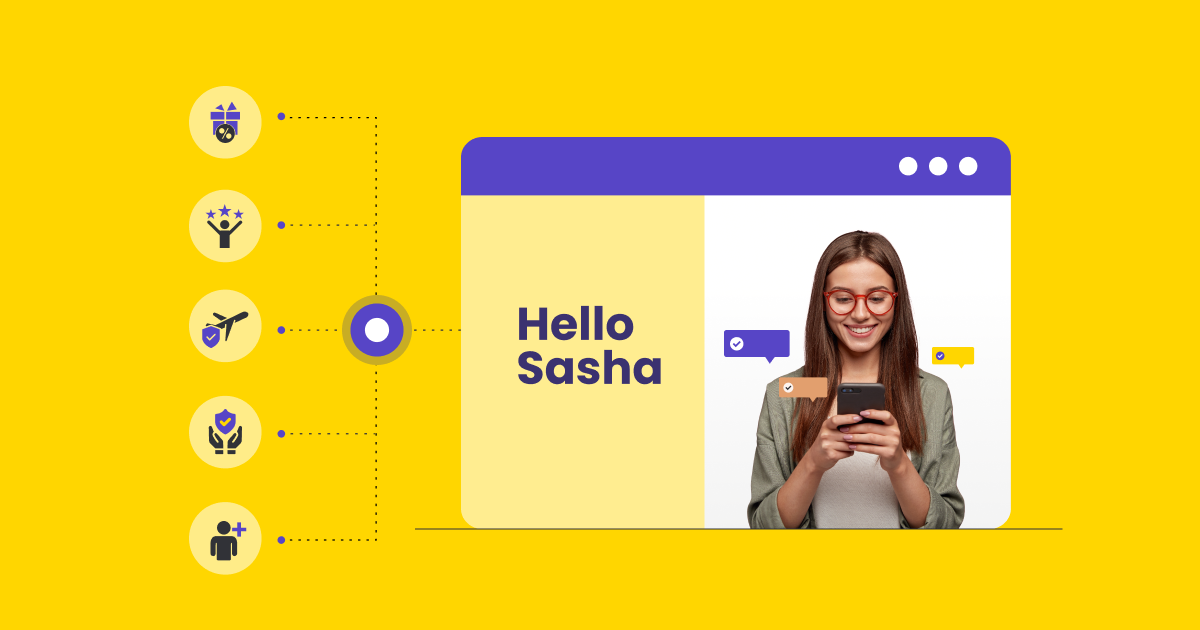
As the online booking space continues to grow, so too does the importance of offering hyper-personalized recommendations. Hyper-personalization is fundamental in the digital landscape, enabling brands to move beyond generic marketing messages and differentiate their services with tailored content. To compete in today’s OTA market, it’s no longer good enough to rely on generalized product offerings; savvy marketers need tailored solutions that cater directly to each customer’s needs. This section explores 5 use cases of leveraging hyper-personalization to help your travel company do that.
1. Personalized Destination Recommendations
Travel companies now have the amazing ability to craft bespoke travel experiences tailored perfectly for each customer. By leveraging data on a customer’s journey, interests, and needs, they can curate unique itineraries with advice on destinations that fit their desires and promotions geared precisely at enhancing the overall experience. What could be better than having an entire trip personalized just for you?
Travel customers also want to get the best deal they can. Still, they want offers that are tailored to them and their needs, as opposed to generic offers that don’t apply. By using data on customer travel preferences, companies can now target certain promotions at specific types of travelers that fulfill their exact needs. This makes the experience much more satisfying and can even help customers save money they may not have known otherwise.
2. Tailored Accommodation Recommendations
Travel companies can provide travelers with an exceptional, tailored experience through customer data. By analyzing accommodation histories and preferences in context, they can generate personalized recommendations for hotels that offer precisely what their customers need – from amenities like air conditioning or free WiFi to suitable locations and price points. On top of this, savvy businesses will leverage these insights even further by targeting promotions toward relevant accommodations. This makes the experience much more satisfying, and customers will appreciate a tailored, customer-centric approach.
3. Real-time Personalized Alerts and Notifications
Leveraging real-time data is the key to enriching a traveler’s experience. By providing customers with timely alerts and notifications regarding upcoming trips, such as flight delays or gate changes, travel companies can guide them more efficiently while delivering personalized promotions that fit their interests. Through hyper-personalization technology that matches customer needs and preferences in an ever-changing landscape of opportunities around us, travelers will have access to experiences tailor-made just for them.
Download Impact Story – TravelTriangle, India’s leading OTA, increased its returning users by 20% through behavior-based targeting
4. Personalized Travel Insurance and Safety Recommendations
Travel companies can now provide a tailored experience for customers, utilizing data to determine the perfect travel insurance and safety plan. Knowing an individual’s history of travels, unique preferences, and real-time context allows them to generate intelligent recommendations that cater specifically – from coverage plans suited best to their needs and security tips based on their locations or upcoming trips. By offering a custom-tailored travel insurance plan, customers can enjoy more peace of mind knowing their specific needs have been met. This technology allows travelers to explore the world without worrying about what could go wrong – giving them greater freedom and flexibility when they’re away from home.
5. Targeted Loyalty Programs and Rewards
With abundant data available, travel companies can use it to craft loyalty programs and rewards that tailor-fit a customer’s needs. This means giving them more relevant offers powered by in-depth insights into their past behaviors, interests, and preferences – making every journey as enjoyable and as rewarding an experience as possible.
Pro-tips On How to Automate Recommendations for Your Travel Company/OTA
By analyzing customer data and studying their online activities, travel companies can better understand the rewards most appealing to them and create programs that will give them the best value for their money. Furthermore, customers are more likely to stick with a company if they feel they’re getting personalized attention and offers – making loyalty programs all the more effective.
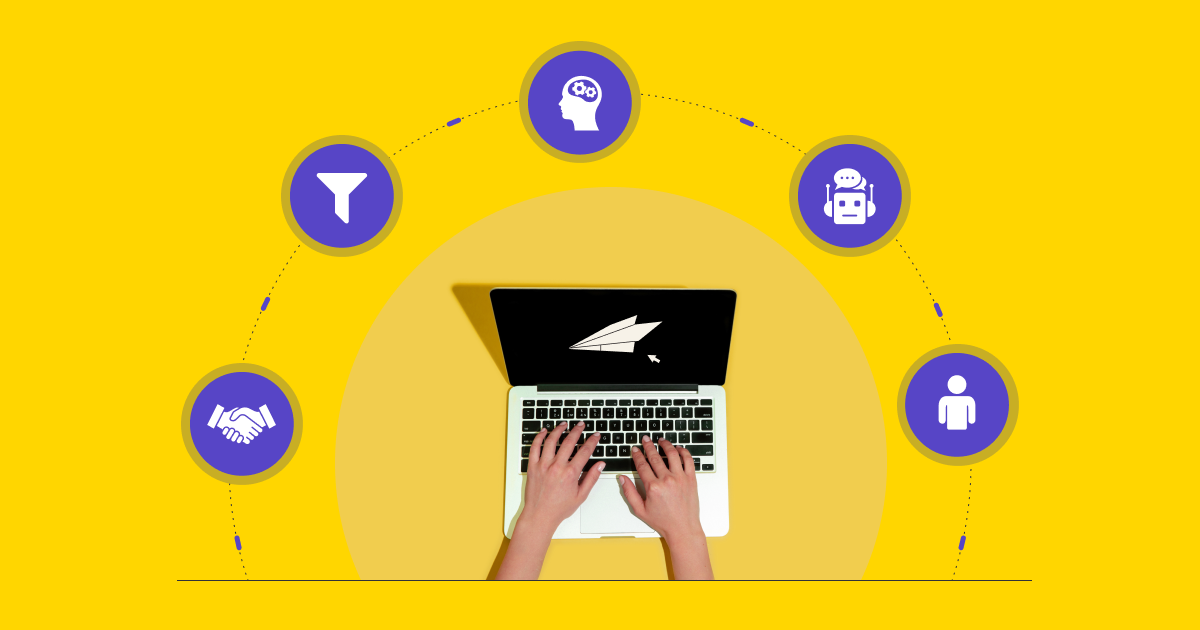
You may have already considered offering personalized recommendations based on user preferences. However, manually implementing such features can be daunting and time-consuming. To help save you effort and money, we are here with a range of pro tips on automating recommendations for your OTA using advanced algorithms. This section will guide you through several use cases demonstrating the power of automated recommendation systems and provide insights into industry best practices when building an automated recommendation engine for your business.
1. Collaborative Filtering
Collaborative filtering is a powerful tool to improve the customer experience in travel. By leveraging past booking behavior, this technique can identify customers’ preferred destinations, accommodation types, activities, and more – allowing companies to suggest relevant options for their next trip! With collaborative filtering at work within your business or organization’s travel process, you will be sure to create an even better user journey explicitly tailored to each individual’s preferences.
2. Content-based Filtering
Content-based filtering provides a smart, tailored way to recommend travel destinations and services that match customers’ preferences. Leveraging information such as location, price, amenities ratings & reviews— instead of simply relying on popularity or past bookings — allows for an in-depth analysis of each offering’s unique features to present ideal options from around the globe.
3. Machine Learning
Leveraging machine learning algorithms, companies can unlock insights from large data sets related to customers and their journeys. By analyzing patterns and trends, these analyses can be used in personalized recommendations for the customer – ensuring that a tailored experience is provided each time.
4. Chatbots
By leveraging chatbots, travel companies can offer their customers the full benefit of personalization. Intelligent questions asked to determine individual preferences and budget needs can allow for tailored recommendations that best fit a traveler’s lifestyle. This innovative approach provides users with an immersive experience along every step of their journey – from research to booking.
5. Personalized Email Campaigns
Travel companies can unleash the power of personalization and automation for their email campaigns to offer customized recommendations tailored to each customer. By tracking past bookings, preferences, behavior, and customer feedback, travel businesses can send emails with targeted destination suggestions, such as accommodations or activities that could be popular amongst travelers.
Learn more about how you can send dynamic emails with WebEngage.
Bonus read: Wego Amasses Nearly 27K Daily Unique Conversion Through Push Notifications
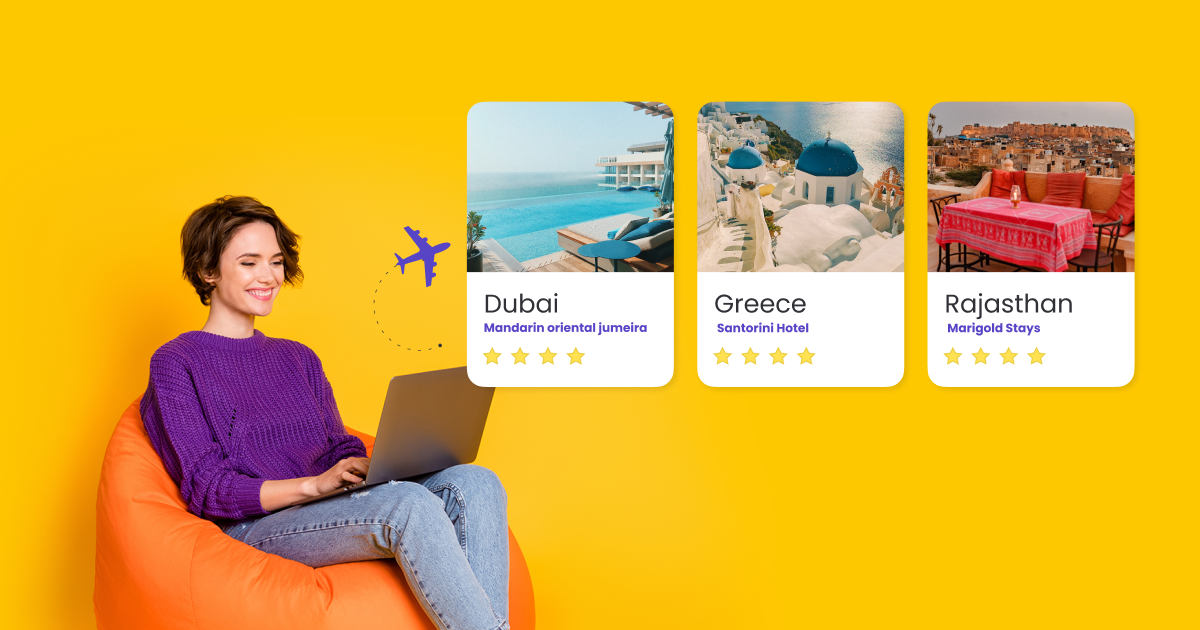
Conclusion
In the modern digital space, hyper-personalization provides countless new opportunities for travel companies to innovate tailored customer experiences. By combining insights from data collected on customers’ journeys and interests, brands can strategically craft personalized recommendations and real-time notifications. Furthermore, brands can offer more specific travel insurance and safety plans based on individual needs. One of the most important and beneficial aspects of using hyper-personalization in the industry is through tailored loyalty programs and rewards that use past interactions as a basis for rewarding customers.
If your travel company is looking to make that leap into personalizing its customer experience, WebEngage has all the tools necessary to get started; with our recommendation and catalog engine, you can discover the benefits of hyper-personalization today.
Book a demo with us now and see how you can use these capabilities for your business.



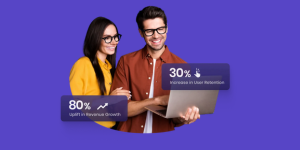


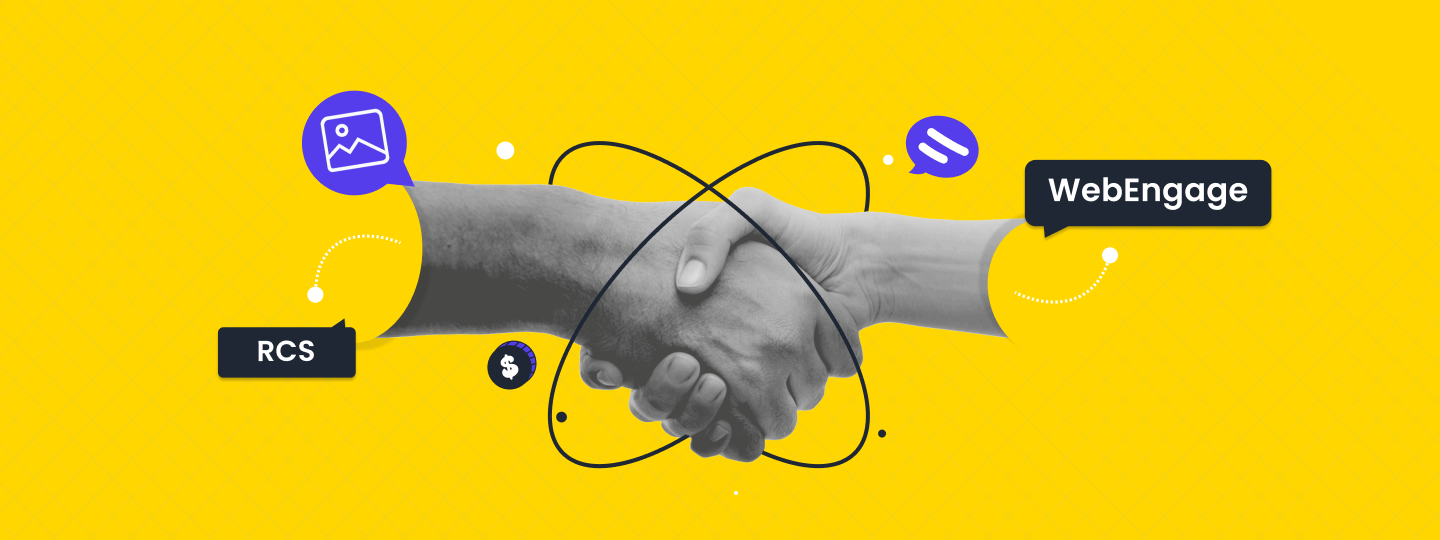
 Ananya Nigam
Ananya Nigam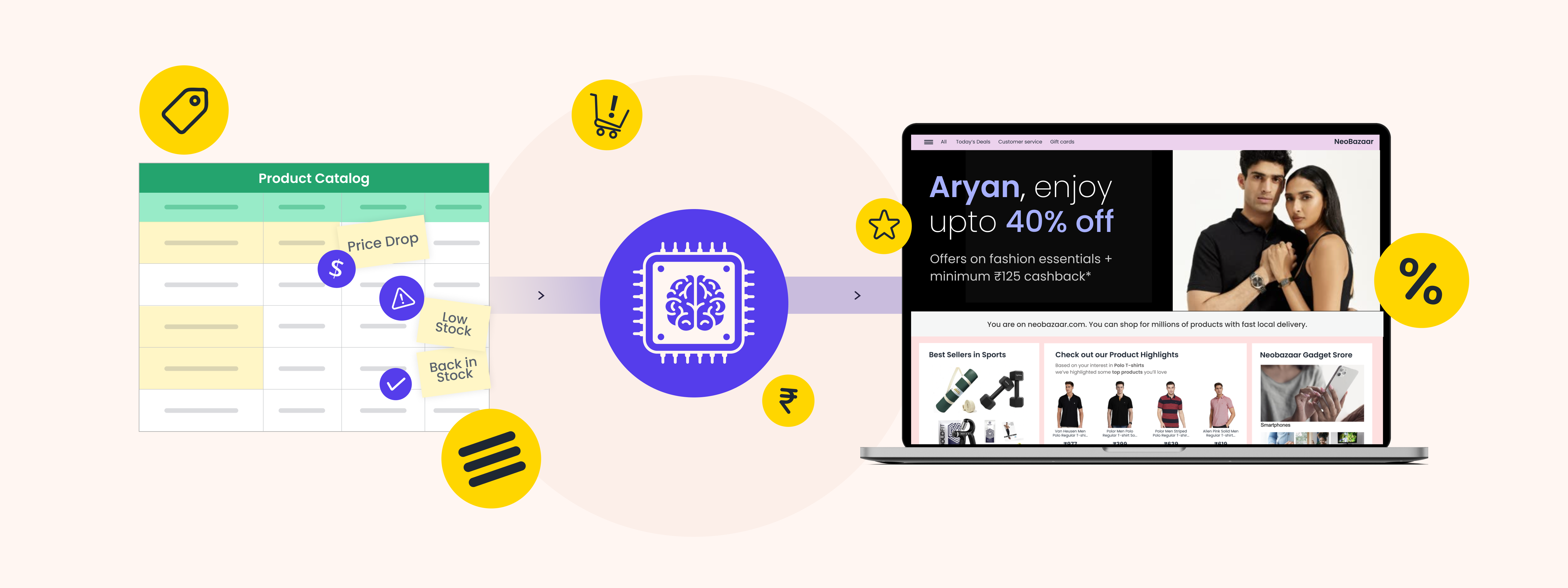
 Manoj Chawda
Manoj Chawda
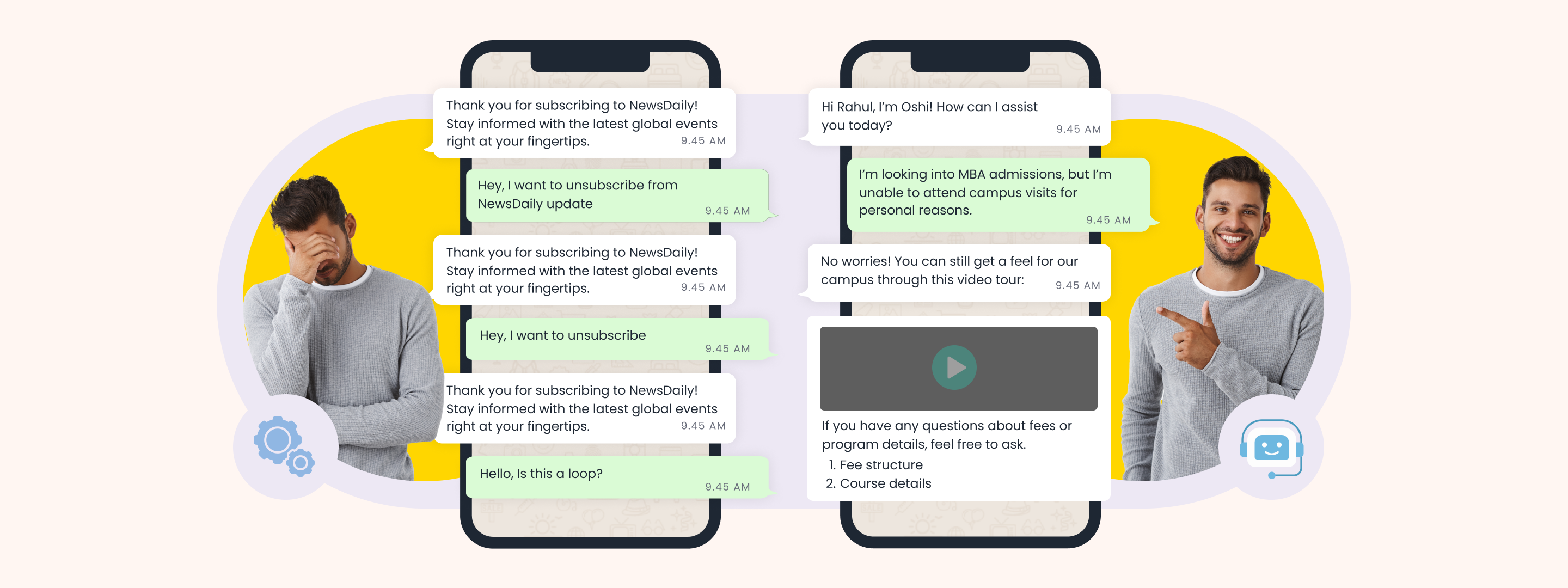
 Surya Panicker
Surya Panicker
 Tina Verma
Tina Verma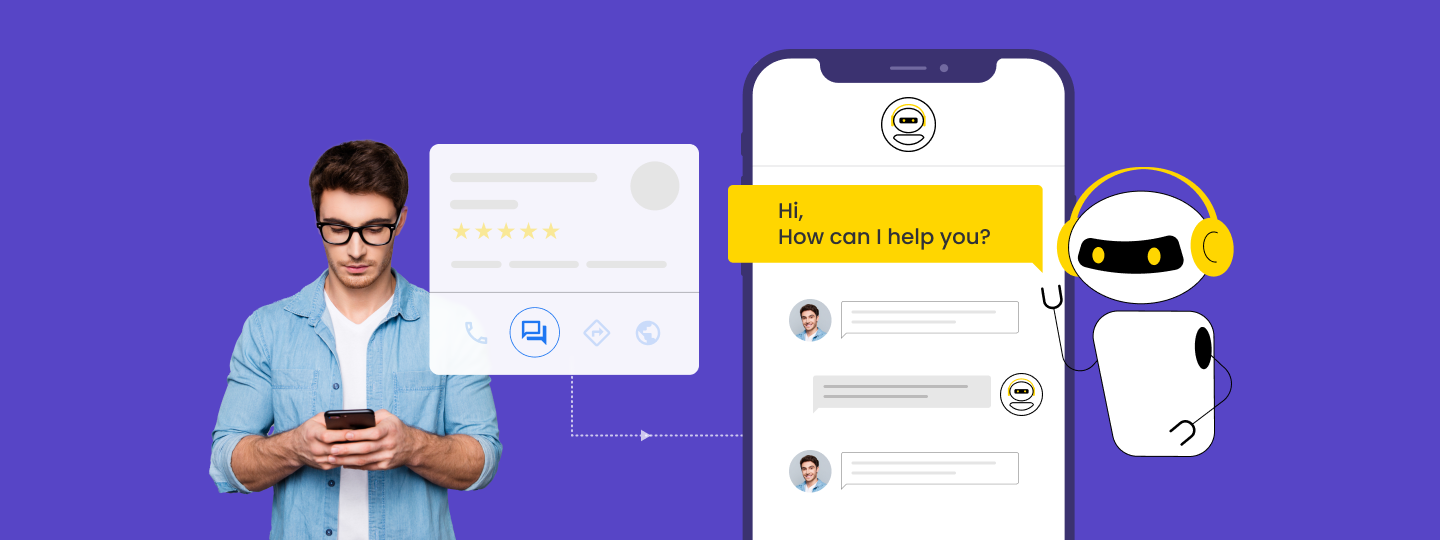
 Dev Iyer
Dev Iyer